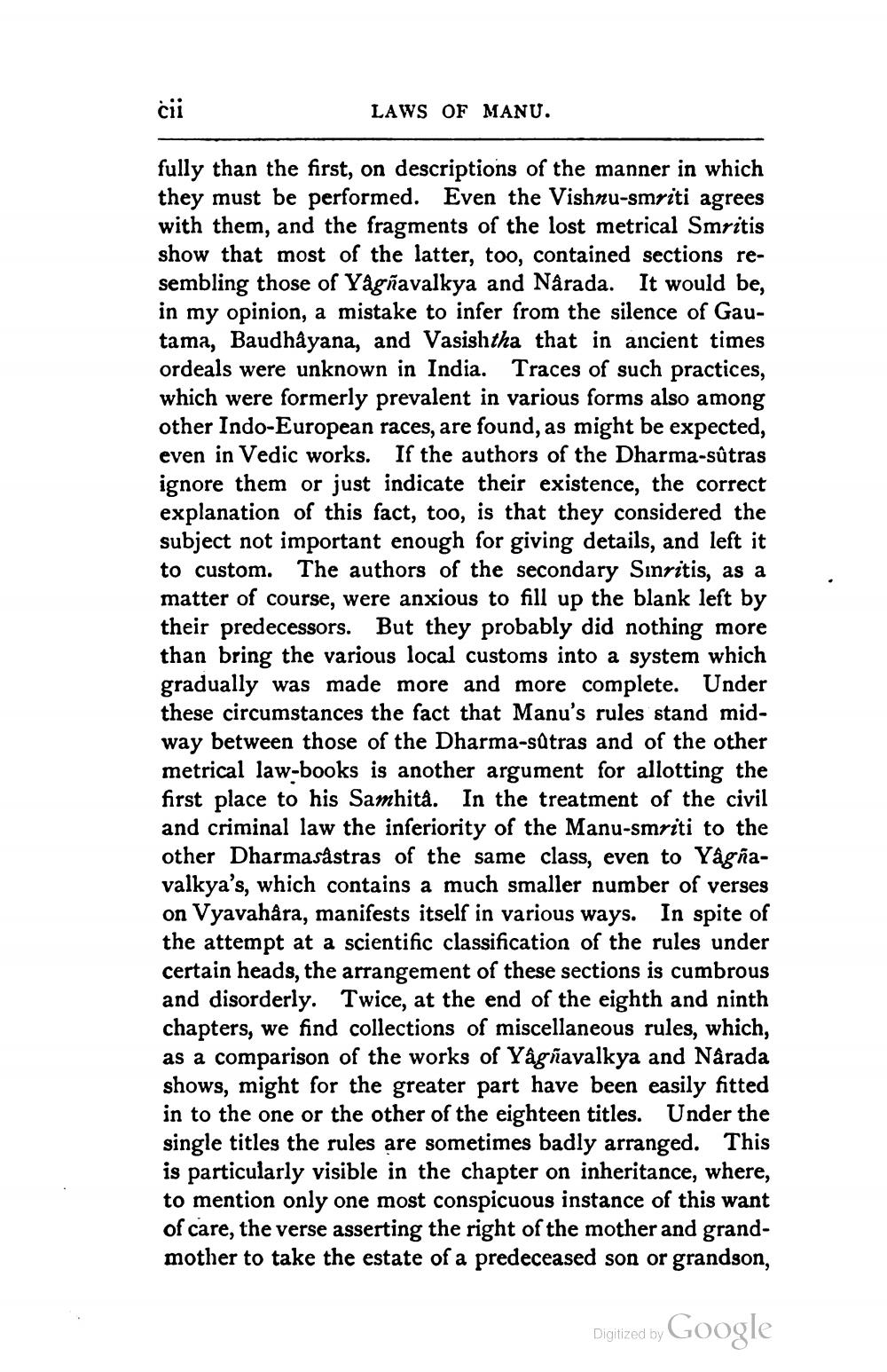________________
LAWS OF MANU.
fully than the first, on descriptions of the manner in which they must be performed. Even the Vishnu-smriti agrees with them, and the fragments of the lost metrical Smritis show that most of the latter, too, contained sections resembling those of Yagñavalkya and Närada. It would be, in my opinion, a mistake to infer from the silence of Gautama, Baudhayana, and Vasishtha that in ancient times ordeals were unknown in India. Traces of such practices, which were formerly prevalent in various forms also among other Indo-European races, are found, as might be expected, even in Vedic works. If the authors of the Dharma-sútras ignore them or just indicate their existence, the correct explanation of this fact, too, is that they considered the subject not important enough for giving details, and left it to custom. The authors of the secondary Sinritis, as a matter of course, were anxious to fill up the blank left by their predecessors. But they probably did nothing more than bring the various local customs into a system which gradually was made more and more complete. Under these circumstances the fact that Manu's rules stand midway between those of the Dharma-stras and of the other metrical law-books is another argument for allotting the first place to his Samhità. In the treatment of the civil and criminal law the inferiority of the Manu-smriti to the other Dharmasastras of the same class, even to Yagnavalkya's, which contains a much smaller number of verses on Vyavahara, manifests itself in various ways. In spite of the attempt at a scientific classification of the rules under certain heads, the arrangement of these sections is cumbrous and disorderly. Twice, at the end of the eighth and ninth chapters, we find collections of miscellaneous rules, which, as a comparison of the works of Yagñavalkya and Narada shows, might for the greater part have been easily fitted in to the one or the other of the eighteen titles. Under the single titles the rules are sometimes badly arranged. This is particularly visible in the chapter on inheritance, where, to mention only one most conspicuous instance of this want of care, the verse asserting the right of the mother and grandmother to take the estate of a predeceased son or grandson,
Digitized by Google




